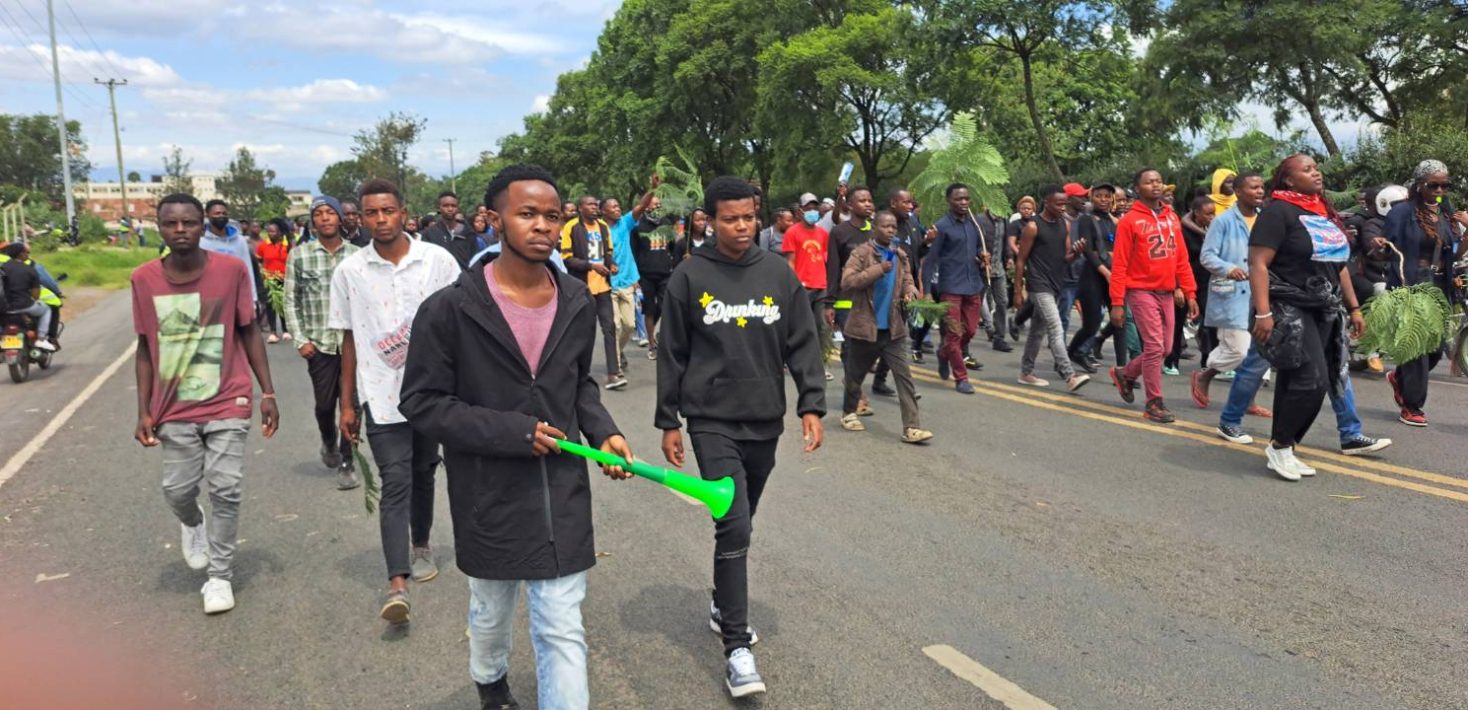The youth demographic has been widely researched and studied, and their issues and recommendations to resolve their challenges are all public. Youth unemployment, underemployment, inadequate decent jobs, inadequate support for their start-ups, femicide, challenges in sustaining innovative initiatives, and, more recently, inability to afford college fees are all in the public domain.
Considering the universality and indivisibility of human rights and the diverse nature of individual youth, it is important to acknowledge that this group has continuously endured intersectional and cross-cutting violations in the socio-economic, civil and political spectrum, from extrajudicial executions, systemic inequality, discrimination, suppression of civic space, unlawful and stereotypical arrests among many other examples.
The unutilized potential of this group and the unending debt and expenditure crisis in the country have exacerbated the anger and quest for swift action to their existential threats. The inadequate public participation that has perennially excluded their views and stereotypes that young people are not sufficiently experienced has added salt to the injury. The initial 2024/2025 finance Bill included far-reaching provisions that, if allowed, would impoverish Kenyans, including youth struggling to make ends meet. To imagine that the government would consider increasing taxes on basic commodities, including bread, and then use diabetes to justify such a draconian move did not make sense.
In 2024 alone, there have been over 4 protests by young people in their diversity calling on the government to act swiftly on pertinent issues, including the adherence to court orders, the establishment of mechanisms and laws to deal with femicide and the posting of medical interns, among others. Most of the protests’ demands fell on deaf ears while youth found other avenues to express dissatisfaction. Social media was one such avenue however, insensitive comments from leaders fueled their anger by terming the online activism as “noise” among other derogatory terms.
The wanton, untamed corruption allegations against government officials, coupled with the spewing of opulence on social media, triggered a lot of negative reactions from young citizens. With 65% of Kenyan women and girls experiencing period poverty and undermining comments trivializing, these experiences pushed young women into the streets not just to exercise their constitutional right but also to express their frustration with the offices of Women Representatives that have allegedly not done much for women in Kenya.
Any Kenyan citizen can guess that what the young people (the majority population over 75%) of Kenya want is a democratic country governed by the rule of law and not the rule of the sword, where human rights principles are applied not just on text but practically in implementation of all laws and policies. Young people need to see and feel that Article 10 on national values and principles, including inclusion and integrity, is a living reality rather than some theoretical imagination. A country where the people’s basic needs are prioritized first, including all socio-economic rights under Article 43 of CoK. Youth want intersectional justice and accountability for all lives destroyed and lost through bad governance in the country.
Zaina Kombo is Amnesty International Kenya’s Equality and Anti-Discrimination Campaign Manager and writes in her personal capacity. Email: [email protected]


